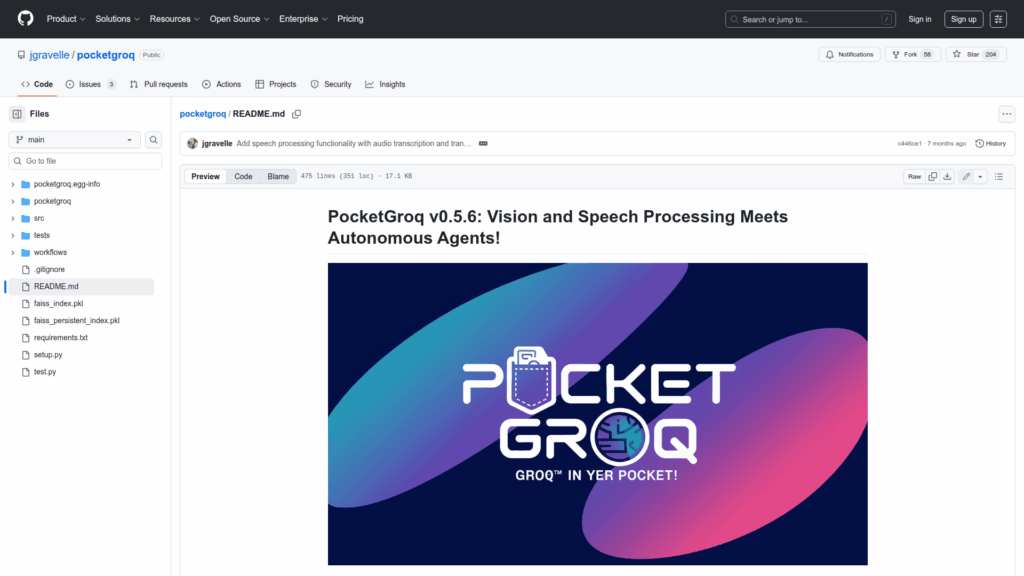pocketgroq
Basic Information
PocketGroq is a Python SDK and toolkit for developers who want to integrate with the Groq API and build multimodal AI applications and autonomous agents. It exposes a central GroqProvider class and several managers and utilities to perform text generation, vision analysis, speech transcription and translation, web search and crawling, retrieval-augmented generation (RAG), and automated end-to-end agent workflows. The project is intended for developers building applications that need image and screen analysis, audio processing, web content extraction, document indexing, and autonomous request handling. Configuration is handled via environment variables such as GROQ_API_KEY and optional USER_AGENT. The README documents method signatures, usage examples, and an included test suite so developers can prototype, test, and extend capabilities for custom tools and persistence options.








